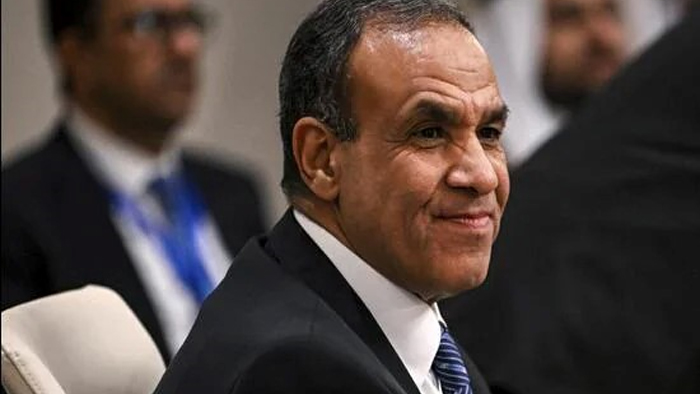Egypt's Foreign Minister to Visit India for Key Strategic Dialogue

Egypt’s Foreign Minister, Sameh Shoukry, is set to visit India for the first time to engage in a strategic dialogue with Indian officials. This visit is expected to strengthen bilateral ties, especially in the areas of trade, security, and regional cooperation. Both nations are keen to deepen their partnership, focusing on fostering greater economic ties and collaborative solutions to regional challenges.
The visit will mark a significant step in the growing relationship between India and Egypt, two important players in the Middle East and South Asia. Diplomatic sources suggest that the discussions will cover various aspects, including defense cooperation, energy, counterterrorism, and climate change. These areas are seen as pivotal in ensuring mutual growth and addressing the broader geopolitical challenges both nations face.
India and Egypt have shared historical and cultural ties, but in recent years, they have been looking to build stronger strategic and economic relations. As both nations face shifting global dynamics, Egypt sees India as an essential partner for future economic and security cooperation. Likewise, India is keen to enhance its presence in the Middle East and North Africa region, where Egypt plays a central role.
This dialogue comes at a time when India’s foreign policy is increasingly focusing on strengthening its ties with key countries in Africa and the Middle East. Egypt, as a prominent regional power, offers India a gateway to deeper engagement in these crucial regions. Experts believe this visit will help both countries explore new avenues of cooperation and mutual benefit, laying the groundwork for long-term collaboration.
The strategic dialogue will also address regional concerns such as the stability of the Middle East, the ongoing challenges in North Africa, and the impact of global security issues. With Egypt’s growing influence in the Arab world and India’s rising global stature, the two nations are expected to discuss ways to cooperate more effectively on regional and global platforms.
Economic cooperation will be another central theme of the discussions, with trade and investment opportunities expected to take center stage. Both countries have already started to explore ways to expand trade in areas such as agriculture, technology, and infrastructure. Egypt has expressed interest in leveraging India’s expertise in the technology and manufacturing sectors, while India sees Egypt as a potential gateway for expanding its trade within Africa and the Arab world.
However, the visit is not without challenges. Egypt is currently navigating complex political and economic issues domestically, including the management of its economy and security concerns related to regional instability. At the same time, India’s own domestic challenges, such as economic reforms and regional security issues, are likely to shape its approach to the dialogue. Both countries will need to carefully balance their domestic priorities with the potential benefits of a deeper strategic partnership.
In conclusion, Egypt’s Foreign Minister’s visit to India is an important milestone in the growing relationship between the two nations. As India looks to bolster its influence in the Middle East and Africa, and Egypt seeks greater engagement with emerging global powers, the strategic dialogue offers a chance to address mutual concerns and explore opportunities for collaboration in key areas such as security, trade, and regional stability.